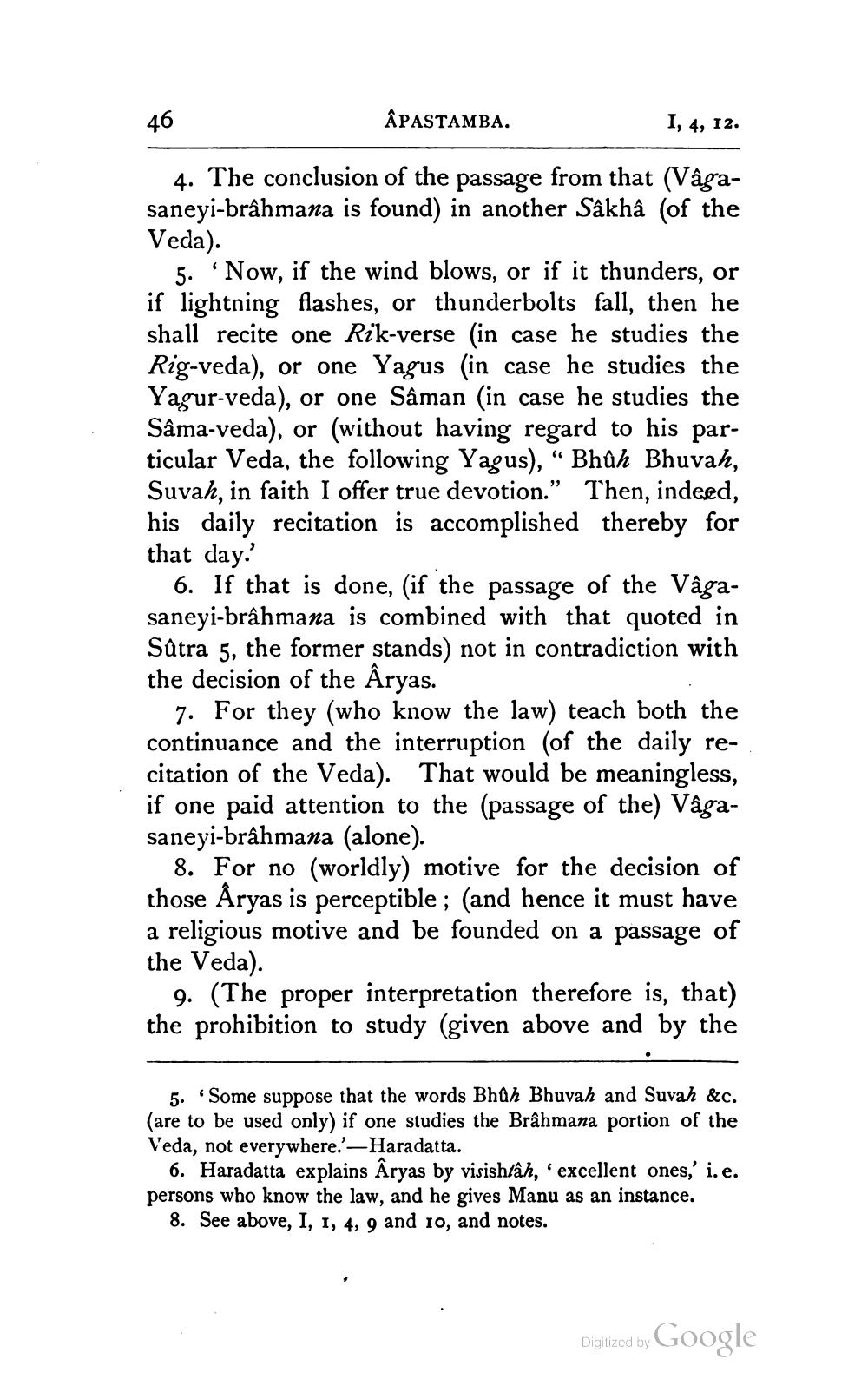________________
46
ÂPASTAMBA.
I, 4, 12.
4. The conclusion of the passage from that (Vâgasaneyi-brâhmana is found) in another Sâkhâ (of the Veda).
"
5. Now, if the wind blows, or if it thunders, or if lightning flashes, or thunderbolts fall, then he shall recite one Rik-verse (in case he studies the Rig-veda), or one Yagus (in case he studies the Yagur-veda), or one Sâman (in case he studies the Sâma-veda), or (without having regard to his particular Veda, the following Yagus), " Bhûh Bhuvah, Suvah, in faith I offer true devotion." Then, indeed, his daily recitation is accomplished thereby for that day.'
6. If that is done, (if the passage of the Vâgasaneyi-brâhmana is combined with that quoted in Sutra 5, the former stands) not in contradiction with the decision of the Âryas.
7. For they (who know the law) teach both the continuance and the interruption (of the daily recitation of the Veda). That would be meaningless, if one paid attention to the (passage of the) Vâgasaneyi-brâhmana (alone).
8. For no (worldly) motive for the decision of those Âryas is perceptible; (and hence it must have a religious motive and be founded on a passage of the Veda).
9. (The proper interpretation therefore is, that) the prohibition to study (given above and by the
5. Some suppose that the words Bhûh Bhuvah and Suvah &c. (are to be used only) if one studies the Brahmana portion of the Veda, not everywhere.'-Haradatta.
6. Haradatta explains Âryas by visishtâh, 'excellent ones,' i. e. persons who know the law, and he gives Manu as an instance. 8. See above, I, 1, 4, 9 and 10, and notes.
Google
Digitized by




